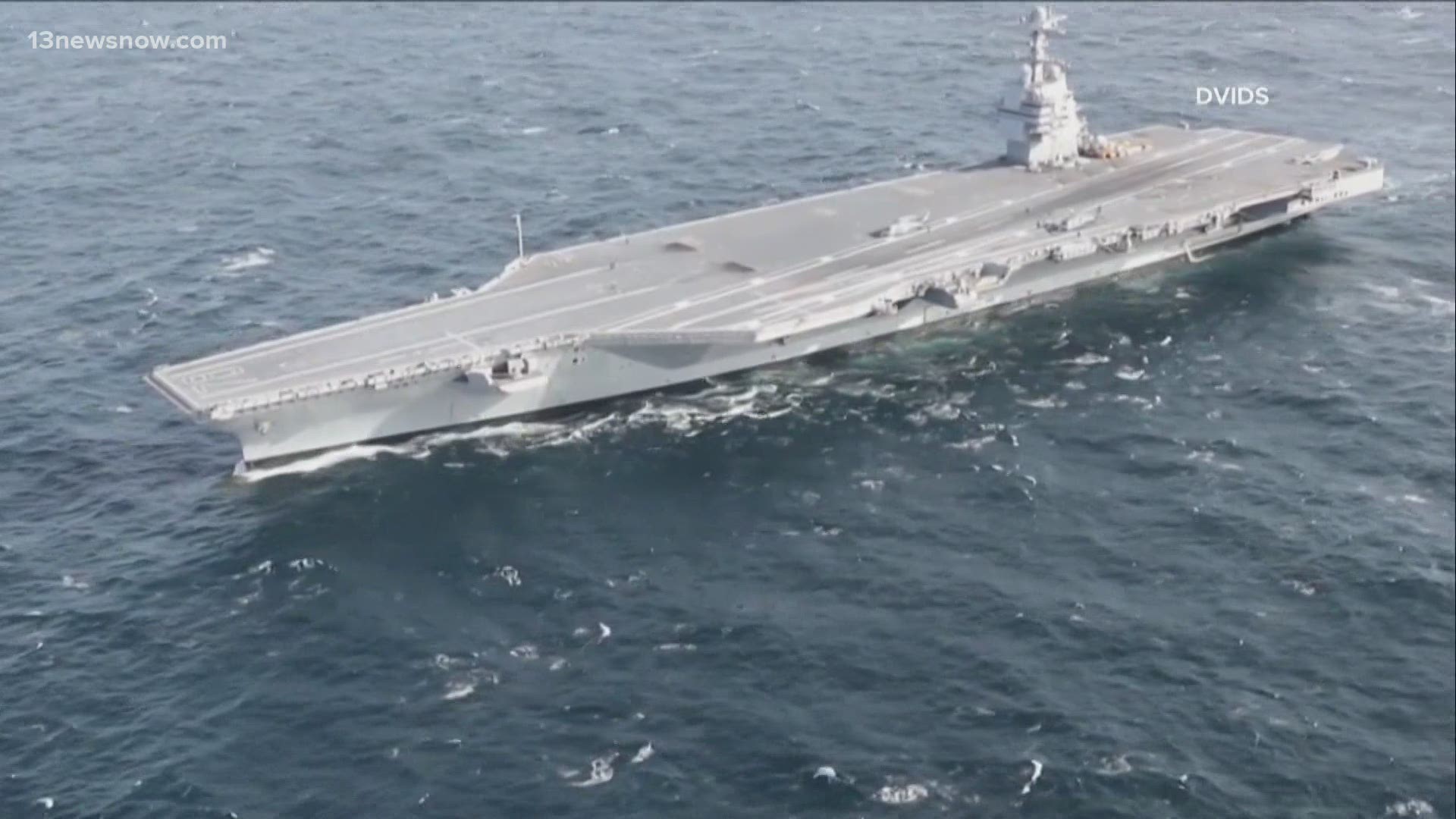NORFOLK, Va. — After years of technical setbacks and delays, it appears it may be full speed ahead for the USS Gerald R. Ford.
Sailors aboard the Ford successfully completed Combat Systems Ship's Qualification Trials earlier this month.
With that, the aircraft carrier and its crew have taken a major step forward with the completion of the 18-month post-delivery test and trials phase of operations.
"I'm just incredibly proud of what the entire team has done," said Carrier Strike Group 12 Rear Admiral Craig Clapperton. "I can tell you, without question, over the last year, there's been an amazing amount of learning, development, and discovery and growth."
The success comes after many well-documented technical challenges since the Ford's commissioning back in 2017.
Among the bigger problems: the ship's advanced weapons elevators. Seven of eleven are now working.
"We're at 14,200 elevator cycles performed by the crew both in port and at sea," said Capt. Paul Lanzilotta, USS Gerald R. Ford’s commanding officer. "We're making a lot of progress ad those elevators are going to be where they need to be when we need them."
Additionally, last June, a Government Accountability Office report on the Ford stated: "Despite maturing its critical technologies, the Navy is still struggling to demonstrate the reliability of key systems, including the electromagnetic aircraft launch system (EMALS); Advanced Arresting Gear (AAG); and dual band radar,"
The next big test for the Ford will be what are called Full Ship Shock Trials, scheduled for this summer.
"This is a very important step and it gives a great validation of the capability of our warships," said Clapperton.
The Navy is on record stating that the first deployment for the Ford will take place in 2024. But, Clapperton said Monday he hopes to "accelerate" that timeline by 12 to 18 months.
The total cost to taxpayers for the Newport News Shipbuilding-built USS Ford so far is $13.3 billion, making it the most expensive warship ever constructed.
The Congressional Research Service says, because of lessons learned with Ford, the three Ford Class aircraft carriers that come after it -- John F. Kennedy, Enterprise, and Doris Miller -- should be substantially cheaper.

